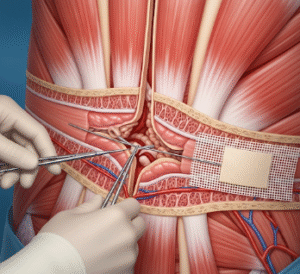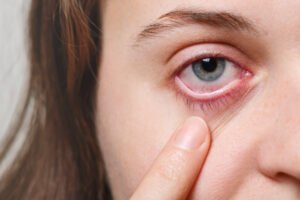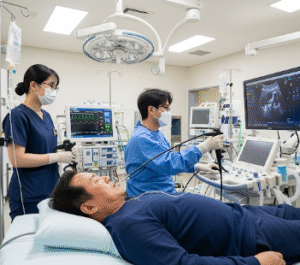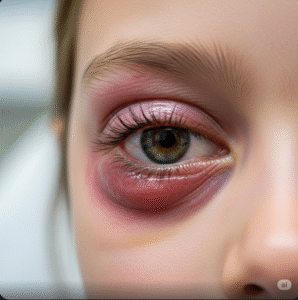Overview
Alcohol intoxication, also known as alcohol poisoning or acute alcohol intoxication, occurs when a person consumes more alcohol than their body can process, leading to physical and mental impairment. It can range from mild disorientation to life-threatening symptoms such as unconsciousness, respiratory depression, or even death. Alcohol intoxication is considered a medical emergency at high levels and requires prompt treatment.
What is Alcohol Intoxication?
Alcohol intoxication is a temporary condition caused by the ingestion of ethanol (alcohol), typically through drinking alcoholic beverages. As alcohol levels in the bloodstream rise, the central nervous system becomes increasingly impaired. The severity of intoxication depends on various factors, including the amount of alcohol consumed, the individual’s tolerance, body weight, age, and overall health.
Blood Alcohol Concentration (BAC) is used to measure the level of alcohol in the bloodstream. Intoxication symptoms typically begin at a BAC of 0.08% and worsen as the level increases.
Symptoms
Symptoms of alcohol intoxication vary depending on the severity and can include:
Mild to Moderate Symptoms:
- Slurred speech
- Impaired coordination and balance
- Mood changes (euphoria, aggression, or depression)
- Slowed reaction times
- Impaired judgment and risk-taking behavior
- Flushed skin
Severe Symptoms:
- Vomiting
- Confusion or stupor
- Low body temperature (hypothermia)
- Slow or irregular breathing
- Seizures
- Unconsciousness or coma
- Cyanosis (bluish skin or lips)
Causes
Alcohol intoxication is caused by excessive consumption of ethanol, which overwhelms the liver’s ability to metabolize it. Contributing factors include:
- Binge drinking: Consuming a large amount of alcohol in a short time
- Liver dysfunction: Slower alcohol breakdown due to liver disease
- Mixing alcohol with other drugs
- Low body weight or tolerance
- Dehydration or fasting: Increases alcohol absorption rate
Risk Factors
- Age: Teenagers and young adults are more prone to binge drinking
- Social pressure: Peer influence may lead to excessive consumption
- Mental health issues: Depression, anxiety, or other psychiatric disorders
- Alcohol dependence or abuse history
- Concurrent drug use: Increases toxicity and risk of overdose
- Lack of food intake before drinking
Complications
Severe alcohol intoxication can lead to:
- Respiratory arrest or slowed breathing
- Choking on vomit (aspiration)
- Seizures due to low blood sugar or toxicity
- Dehydration and electrolyte imbalance
- Irreversible brain damage (especially in children or adolescents)
- Coma or death
- Long-term alcohol use disorders if episodes become frequent
Prevention
- Limit alcohol intake: Follow recommended guidelines
- Never binge drink or engage in drinking contests
- Eat food before and during alcohol consumption
- Stay hydrated with water between alcoholic drinks
- Avoid mixing alcohol with drugs or medications
- Know your tolerance and drink responsibly
- Provide education and awareness, especially for young adults
Treatment Options Korea
1. Initial Assessment and Stabilization
- Airway, Breathing, Circulation (ABC) evaluation
- Check vital signs, glucose levels, and consciousness (GCS score)
- Rule out head injury, drug overdose, or hypoglycemia
2. Supportive Care
- Observation and monitoring in emergency room or hospital ward
- IV fluids (e.g., normal saline or dextrose) for hydration and electrolyte balance
- Thiamine (vitamin B1) given IV or IM to prevent Wernicke’s encephalopathy
- Glucose supplementation if hypoglycemia is present
3. Gastric Decontamination (Rarely Needed)
- Generally not indicated, but may be considered in massive ingestion within 30–60 minutes
- Activated charcoal typically not used for ethanol ingestion
4. Psychiatric Evaluation
- Once alert, assess for suicidal intent, alcohol use disorder, or underlying mental illness
- Referral to psychiatry or addiction services if necessary
5. Monitoring for Complications
- Watch for:
- Aspiration pneumonia
- Respiratory depression
- Cardiac arrhythmias
- Seizures (especially with mixed substance use or withdrawal)
6. Discharge and Education
- Discharge when patient is fully alert and medically stable
- Provide brief alcohol counseling or referral for long-term treatment if indicated
- Encourage follow-up with family medicine or mental health services













